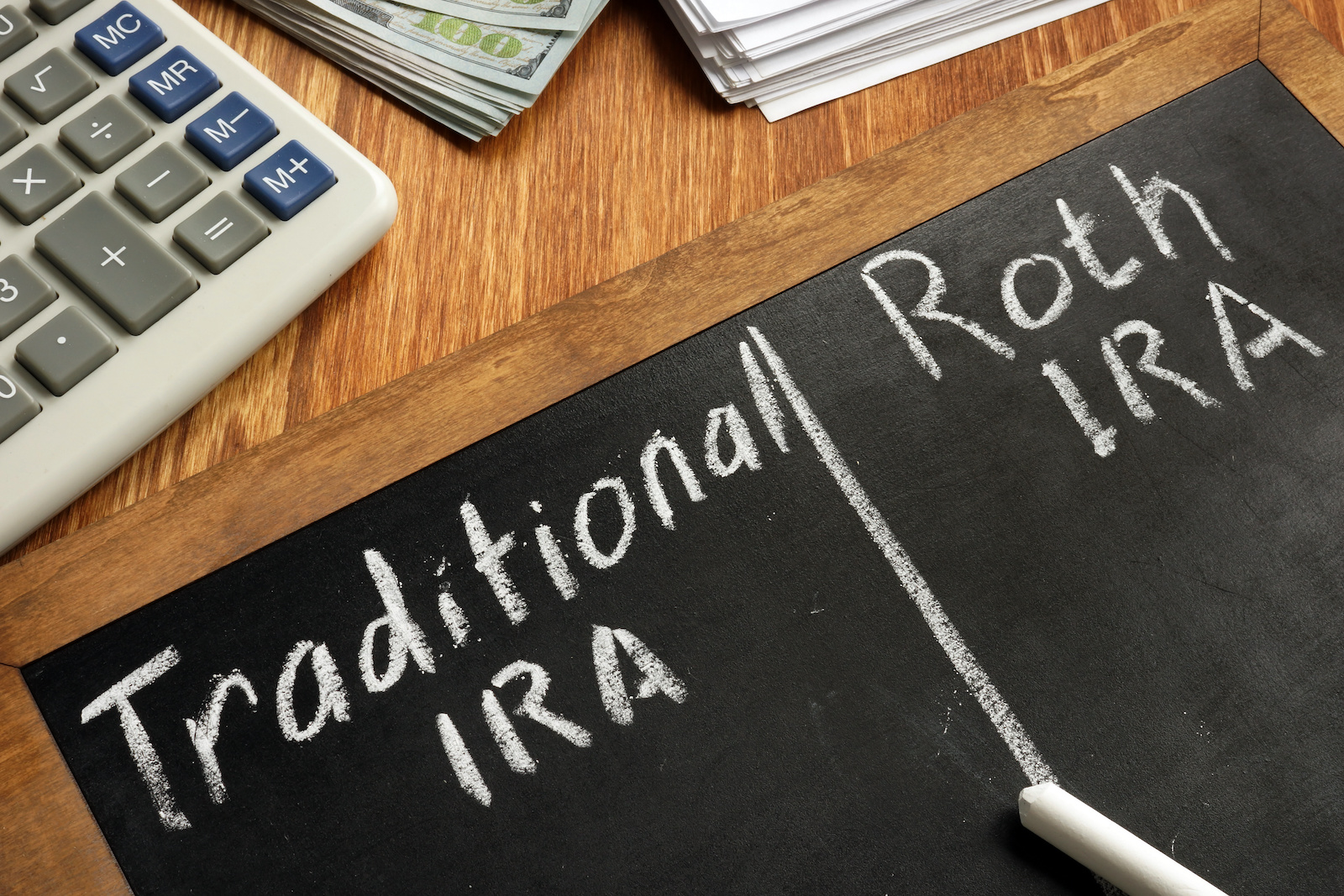During the pandemic, the value of many traditional IRAs dropped with the decline in the stock markets, so it may be time to consider a Roth IRA conversion. Lower income in the conversion year could also be a factor in this decision, since the conversion amount could be taxed in a lower tax bracket. Taxes are on sale between now and 2025, the last year of tax reform, so now is the time to consider converting a traditional IRA to a Roth IRA. Converting to a Roth IRA could save you from paying higher taxes in retirement, because there is always a possibility that tax rates will go up in the future. That means the declining market could actually result in long-term tax savings.
A Roth IRA conversion is taking all or part of your assets from a traditional IRA and other retirement plans such as 401(k)s and 403(b)s and converting the funds to a Roth IRA. Deposits to a traditional IRA are tax deductible.[1] Withdrawals are taxed as ordinary income for federal income tax purposes and early withdrawals can be subject to a 10% penalty. For Roth IRAs, deposits are not tax deductible and, generally, there are no taxes when funds are withdrawn[2]. In general, to invest in a Roth IRA, modified adjusted gross income (MAGI) should be below a certain limit. For married filing jointly, income should be less than $214,000 a year in 2022 (up from $208,000 in 2021), but single and head of household filers have a cutoff of $144,000 (up from $140,000 in 2021). These income limits, however, do not apply to Roth IRA conversions.
Getting decades of tax-free compounded growth is one of a Roth IRA’s advantages and what makes a conversion so attractive now. A Roth IRA conversion also can be a great estate planning strategy. The SECURE Act requires traditional IRA beneficiaries to withdraw all the assets in the account within 10 years and pay the resulting tax bill. This may put beneficiaries in a higher tax bracket, so a Roth IRA conversion is beneficial to heirs. If the conversion is made, distributions can be made as needed as there is no required minimum distribution (RMD) for a Roth IRA. While the beneficiaries of Roth IRA will be required to take RMDs, the amounts withdrawn will be not taxed as long as the fund has been in the Roth IRA for five years. This makes a Roth IRA a great estate-planning tool to pass assets down to beneficiaries without any tax.
The Tax Cuts and Jobs Act (TCJA) of 2017 prohibits re-characterization of Roth conversions which means conversions made after 2017 are permanent. When the conversion is made, there is no turning back. We have made the case for considering a conversion now, but each situation is different. If the circumstances are right, a conversion can be accomplished by having the administrator of your retirement plan pay funds directly into the Roth IRA by either check or a trustee-to-trustee transfer. This can also be accomplished by taking a withdrawal from the account and rolling it over to the Roth within 60 days. Since taxes are due on the withdrawal, one strategy to minimize the tax liability is to spread withdrawals over several years so that they never push you into a higher tax bracket. The tax consequences of a withdrawal need to be examined in depth before the decision to convert is made. Yes, if a traditional IRA has dropped from $50,000 to $25,000, conversion is a possible tax savings option. Yes, the $25,000 withdrawn will be additional taxable income. That being said, that taxable amount might be reduced based on past non-deductible IRA contributions or certain charitable giving strategies. Unfortunately, it is easy to forget how other ramifications of increasing adjusted gross income affect your finances. Items that can be affected are things like the cost of Medicare and the taxability of Social Security for retirees as well as certain tax credits and other deductions that phase out as income increases. So, a Roth IRA conversion should not be made in a vacuum. If you do make the conversion, be sure you plan to have the cash on hand for the taxes that will be due.
If you need help modeling the immediate and long-term consequences of a Roth IRA conversion, please allow us to assist.
Article Submitted by Tien Tran.
Sources
https://windes.com/converting-to-a-roth-ira-in-these-pandemic-times/
[1] Non-deductible contributions are allowed but must be tracked separately to avoid taxation.
[2] Distributions from a Roth IRA are tax-free if the withdrawals are made after age 59 and it has been at least five years since the conversion.







